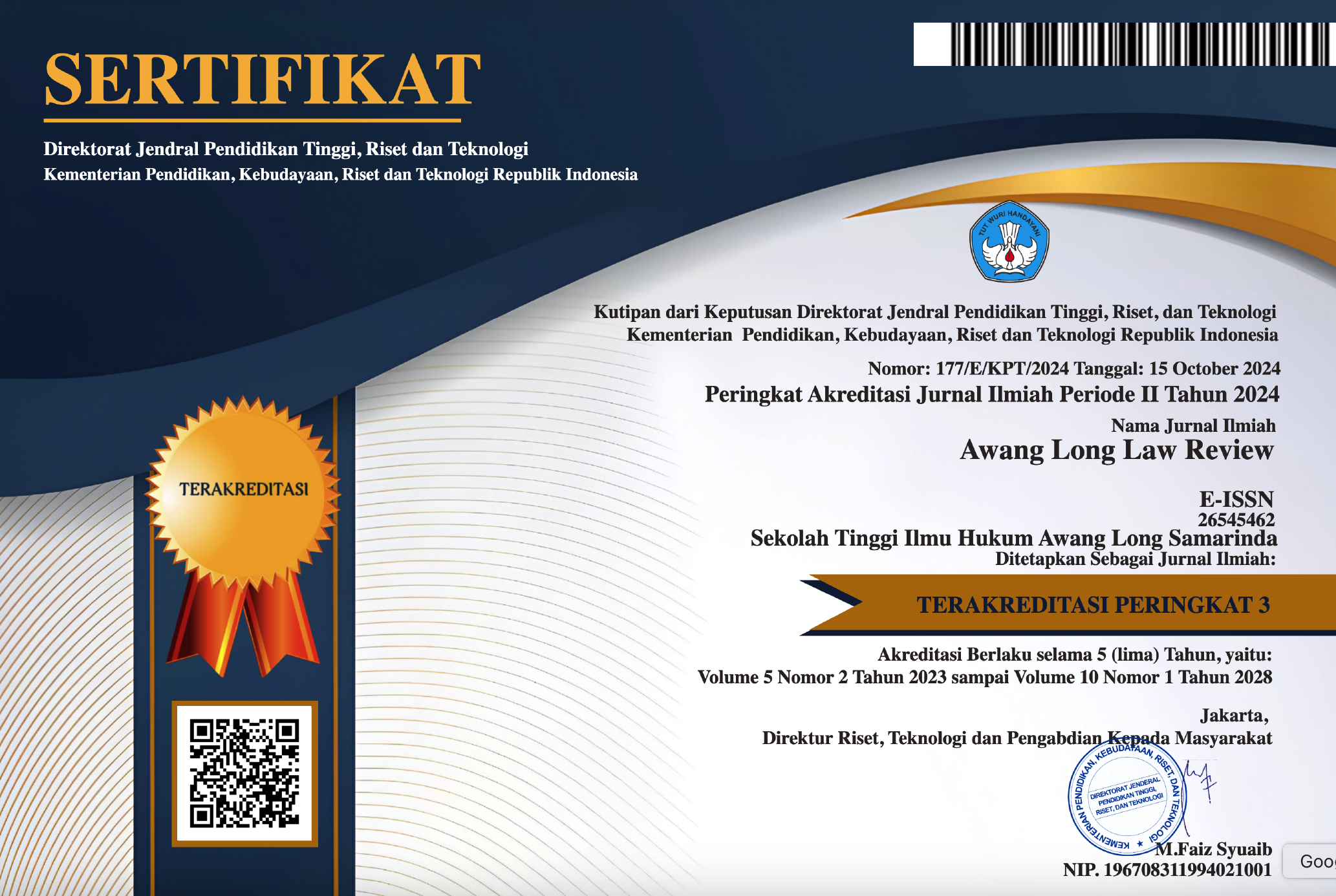LEGAL RELATIONS IN THE USAGE OF LETTER OF VALUE AND BANKING INSTRUMENTS AS A MEANS OF PAYMENT
Abstract
In order to facilitate transactions, the banking sector determines several forms of payments, such as in real money, paper based and e-money. As a form of payment and receivable account, paper money holds function equivalent to real money, which are authenticated in negotiable instruments. The usage of negotiable instruments and the cashing are regulated in several agreements between the two parties, which are also involve another party like Bank Indonesia or the affiliates. This research is conducted with the intention of observing the forms and systems of payment using Securities and Banking Notes, as well as how the legal relationship between the issuer of securities and the holder of securities. Normative legal research methods is used to find the basis, principles and doctrines of law as an effort to overcome the legal issues that are the focus of research. Although, in such a contract, the legal basis of law is needed since negotiable instruments are often used as a payable form in several transactions which affects in ownership changes. Thus, for these cases, there are four theories that can be used: Creatief Theories, Vertoning Theories, Overeenkomst Theories, and Redelijkhesdist Theories. The issuance of SBPU is done to regulate the rate of demand deposits that replace the function of money, SB also holds a function as a letter that guarantees the receivables and obligations of the party who has a debt.
Downloads
References
Aprita, S. 2021. Hukum Surat-Surat Berharga. CV. Amanah: Palembang.
Hermansyah. 2011. Hukum Perbankan Nasional Indonesia. Ed. 2 (6). Prenada Media Group, Jakarta.
https://prezi.com/ajwh_unx-wmi/jenis-amp-alat-pembayaran-non-tunai/?webgl=0 diakses pada 28 Oktober 2022
Keputusan Presiden Nomor 5 Tahun 1984 tentang Penerbitan Sertifikat Bank Indonesia
Kitab Undang-Undang Hukum Dagang
Mahameru, M., Susanto, A., dan Haryono, H. 2022. Analisis Pengaruh Obligasi Ritel Indonesia dan Inflasi terhadap Dana Pihak Ketiga Bank Konvensional. International Journal of Entrepreneurship and Business. Vol. 3(1). DOI 10.52238/ideb.v3i1.75
Mochtar, D. dan Rahayu, D. 2021. Tanggung jawab Perusahaan dalam Investasi Surat Berharga Syariah Negara. Jurnal Cakrawala Hukum Vol. 12 (2). DOI 10.26905/idjch.v12i2.6224
Muhammad, A. 2007. Hukum Dagang Tentang Surat-Surat Berharga. PT. Citra Aditya Bakti, Bandung.
Prodjodikoro, W. 1966. Hukum Wesel, Cek dan Aksep di Indonesia. Sumur Batu, Bandung.
Purwosutjipto, HMN. 1985. Pengertian Hukum Dagang Indonesia. Djembatan, Jakarta.
Rahman, S., Rinaldy, E. 2013. Hukum Surat Berharga Pasar Uang, Cetakan I, Sinar Grafika, Jakarta, hal.29.
Simanjuntak, E.P. 1981. Hukum Dagang Surat-Surat Berharga. Seksi Hukum Dagang, Fakultas Hukum Universitas Gadjah Mada, Yogyakarta.
Suhaidi, M. 2022. Pengaruh Penerbitan Surat Berharga Syariah Negara (SBSN) dan Faktor Eksternal Terhadap Profitabilitas Perbankan Syariah di Indonesia. Jesya (Jurnal Ekonomi & Ekonomi Syariah) Vol.5(1). DOI 10.36778/jesya.v5i1.643
Surat Edaran Bank Indonesia Nomor 4/570/HPPB/PbB tanggal 24 Januari 1972
Surat Keputusan Direksi Bank Indonesia No.28/84/KRP/DIR tentang Penerbitan dan Perdagangan Sertifikat Bank Indonesia
Surat Keputusan Direksi Bank Indonesia No. 31/67/KEP/DIR tentang Penerbitan dan Perdagangan Sertifikat Bank Indonesia serta Investasi Rupiah
Undang- Undang Nomor 21 tahun 2008 tentang Perbankan Syariah
Undang-Undang Nomor 7 tahun 1992 tentang Perbankan
Undang-Undang Nomor 10 tahun 1998 tentang Perbankan
Copyright (c) 2023 Nobella Indradjaja, Chamdani

This work is licensed under a Creative Commons Attribution-ShareAlike 4.0 International License.







